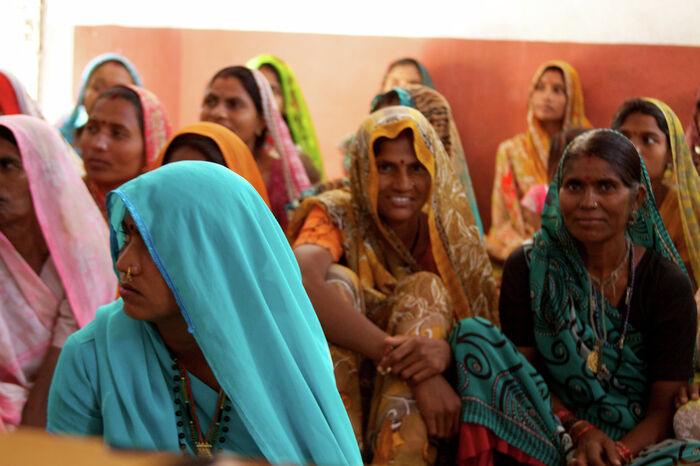Agriculture is fuelling a global crisis of antibiotic resistance
The overuse of ‘last resort’ antibiotics in farming industries will substantially reduce the effectiveness of life-saving medicines

Antibiotic resistance is a growing problem which has been predicted to kill 10 million people a year by 2050, and cost the world economy $100 trillion. Disturbingly, the Bureau of Investigative Journalism has found that chickens raised for food in India are being routinely dosed with colistin, a ‘last resort antibiotic’ which is only used in humans to treat infections with bacteria which have already become resistant to other drugs. Colistin is openly sold as a growth promoter by at least five different animal pharmaceutical companies in India. One of these companies, Venky’s, supplies chicken to Indian fast food chains such as KFC, McDonald’s and Pizza Hut. The Bureau were able to buy 200g of Venky’s colistin over the counter without a prescription in a poultry feed shop in Bangalore.
First used clinically in the 1950s, colistin fell out of favour in the 1980s due to its unpleasant side effects, which include kidney and nerve damage. However, more recently it has come back into use due to the emergence of bacteria resistant to most commercially available antibiotics. For years, resistance to colistin was rare, but in 2015 a gene for colistin resistance was found in bacteria from Chinese pigs. This gene, known as mcr-1, can be transferred between species of bacteria, providing a way for drug resistance to spread quickly across bacterial populations.
This finding was swiftly followed by a ban on the use of colistin as a feed additive for animals by the Chinese Ministry of Agriculture in November 2016. However, by February 2017 mcr-1 had been detected in more than 30 countries on five continents, and by December four more genes for colistin resistance had been discovered. This growing resistance crisis can only be further fuelled by the widespread agricultural usage reported in India. Higher exposure to colistin drives increased resistance, and drug-resistant strains can then be passed to humans through eating contaminated meat, or by direct contact with animals by farm workers.
Unfortunately, there is no obvious solution for if, or indeed when, ‘last resort’ antibiotics such as colistin stop working. After the ‘golden age’ of antibiotic discovery in the 1950s, when half of all drugs in common use today were discovered, today the pipeline for new antibiotics has all but dried up. A September 2017 report by the World Health Organization only classed 8 of the 51 antibiotics currently in development as ‘innovative’ and likely to add value to the current arsenal of treatments. This is bleak news when you consider that the success rate for clinical drug development is about 1 in 5. Because antibiotics are only taken for a short time, they do not provide the same potential income stream for pharmaceutical companies as drugs that are used to treat long term conditions. This means companies are unlikely to invest the $1 billion required to take a possible antibiotic from the lab to the clinic, especially as resistance to the new drug is likely to emerge within a few years.
Research into potential solutions for the resistance crisis is being carried out, but it is unclear whether these will have any long-term impact. In 2015 researchers used a new technique, known as the iChip, to cultivate soil bacteria which previously could not be grown in a lab. They found that these bacteria secreted teixobactin, potentially the first of a new class of antibiotics. The hope is that the iChip can be used to isolate more antimicrobial compounds from soil bacteria in future. Another possible research avenue is phage therapy. Phages are a type of virus that specifically attack bacteria, which are already used to treat bacterial infections in Russia and Georgia. Currently phage therapy is not clinically approved in any Western countries, but several clinical trials are being carried out in the West, including Phagoburn, a large scale clinical trial funded by the European Commission.
However, it is likely that bacteria will eventually evolve resistance to any new treatment, and we can only ever be one step ahead. This makes it all the more important that we try to preserve the antibiotics that we already have. Using antibiotics as growth promoters in farming has been banned in the EU since 2006, and in the US since 2017. However, antibiotic resistance is a global problem, and resistant bacteria have no concept of borders. Clearly global cooperation is needed to curb agricultural overuse of antibiotics worldwide. Also, after Brexit the UK will no longer be bound by EU law on use of antibiotics in farming, and there are fears that less favourable market conditions will increase use of antibiotics if agricultural production intensifies. In addition, new trade deals could potentially allow import of chicken from the Indian farmers using colistin as a growth promoter. The UK government will have to consider antibiotic resistance when making new farming legislation, as well as when it is negotiating new trade deals.
 Comment / Cambridge’s tourism risks commodifying students18 April 2025
Comment / Cambridge’s tourism risks commodifying students18 April 2025 News / Cambridge student numbers fall amid nationwide decline14 April 2025
News / Cambridge student numbers fall amid nationwide decline14 April 2025 News / Greenwich House occupiers miss deadline to respond to University legal action15 April 2025
News / Greenwich House occupiers miss deadline to respond to University legal action15 April 2025 Comment / The Cambridge workload prioritises quantity over quality 16 April 2025
Comment / The Cambridge workload prioritises quantity over quality 16 April 2025 News / Varsity ChatGPT survey17 April 2025
News / Varsity ChatGPT survey17 April 2025





